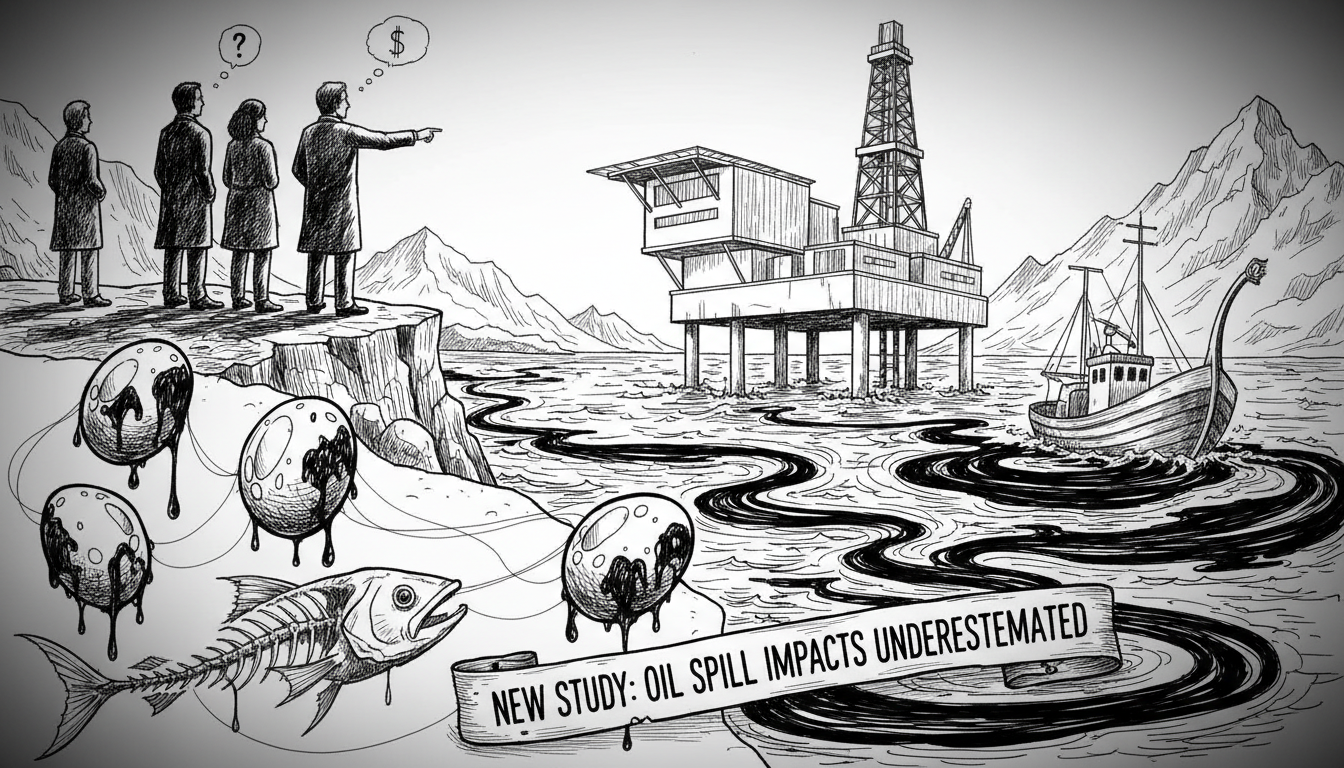A new study reveals oil spill consequences may be far worse than previously thought. Research shows oil droplets can attach to sticky fish eggs, increasing mortality rates beyond earlier estimates.
Lead researcher Håvard Frøysa from the Institute of Marine Research conducted groundbreaking laboratory tests. He examined how oil droplets bond with fish eggs for the first time.
Previous research focused on loose oil in ocean ecosystems. This study specifically analyzed oil droplets and their attachment to haddock eggs.
Scientists simulated a major fictional oil spill in Lofoten during peak spawning season. Even if eggs drift away from contaminated areas, oil droplets can travel with them.
This means mortality rates for some species could be much higher than estimated. The findings could impact new oil permits and emergency preparedness.
Research director Frode Vikebø says these results must inform future risk assessments. Oil droplets have typically been excluded from such analyses until now.
The discovery emerged recently when scientists found oil droplets stick to adhesive fish eggs. Vikebø emphasizes the need for more research on similar fish species.
Oil droplets can cover larger areas than loose oil. This suggests oil spill effects might be substantially greater than current models predict.
All oil spills contain both loose oil and droplets that can damage ecosystems, according to Frøysa. Severity depends on oil type, weather conditions, and containment efforts.
Since oil is lighter than water, it typically rises to the surface. Fish spawn enormous quantities of eggs, with only a small portion surviving to adulthood.
When oil droplets attach to eggs, immediate effects include death or deformities. The simulated spill matched the scale of the 2010 Deepwater Horizon disaster.
Norway has experienced few major oil spill incidents. The recent New Year's Eve leak at the Njord A platform released nearly 80,000 liters into the Norwegian Sea.
Six weeks later, oil lumps appeared along the Trøndelag coast. This marked the first time crude oil from offshore fields reached Norwegian shores.
Vikebø stresses the study's importance despite low statistical risks of major spills. The research provides new tools for more accurate risk modeling.
The timing of spills relative to spawning seasons proves crucial. The Njord A incident occurred before haddock spawning and far from their migration areas.
These findings challenge current environmental impact assessments. They suggest regulators may need to update approval processes for new drilling operations.
Norway's oil industry faces increased scrutiny as this research reveals previously unaccounted risks to marine life.
